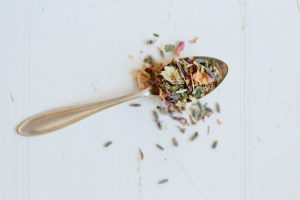The Naturopathic Co.

You're using an outdated browser. Please upgrade your browser to improve your experience.
Pre-menstrual Dysphoric Disorder (PMDD) is a severe type of premenstrual syndrome. It is characterised by moderate to severe affective and behavioural symptoms that occur post ovulation and peak in the luteal phase of the menstrual cycle, becoming minimal or absent at the onset of menstruation.
Pre-menstrual syndrome affects millions of Australian women each year. Pre-menstrual Dysphoric Disorder (PMDD) is a severe type of premenstrual syndrome with incapacitating symptoms that may be severe enough to impair daily function. PMDD is characterised by moderate to severe affective and behavioural symptoms that occur post ovulation and peak in the luteal phase of the menstrual cycle, becoming minimal or absent at the onset of menstruation.
Markedly depressed mood, feelings of hopelessness, or self-depreciating thoughts.
Marked anxiety, tension, or feelings of being ‘on edge’
Marked affective lability (suddenly sad or tearful).
Persistent and marked anger and irritability
Subjective sense of difficulty in concentrating.
Marked change in appetite
Hypersomnia or insomnia
A subjective sense of being overwhelmed or out of control
The disturbance markedly interferes with social activities, work, school
Hormones such as pregnenolone, progesterone, oestradiol, and corticosterone can be synthesised in the brain where they act on neuron receptors in parts of the brain that influence mood, cognition and behaviour. They influence the release of neurotransmitters such as serotonin, GABA and dopamine.
A sensitivity to rising levels of progesterone in the luteal phase (2nd half of cycle) has been implicated as a potential trigger of PMDD. In women without PMDD, there is modulation of the GABA which results in reduced anxiety and mild sedation. Women with PMDD show altered GABA sensitivity, resulting in mood and behavioural disturbances such as aggression, anxiety and poor executive function.
Women with PMDD demonstrate altered serotonergic activity in the luteal phase of the menstrual cycle. This is largely driven by withdrawal of oestrodiol. Oestrodiol is known to increase serotonergic activity.
Plasma melatonin has been shown to be delayed in the luteal phase of women with PMDD and is believed to contribute to mood disturbances. This may be due to blunted serotonin production, and serotonin is a precursor for melatonin production.
Women with PMDD demonstrate a marked negative response to stressors and heightened stress reactivity. Chronic stress alters the composition of GABA-a receptors.
Women who have a history of trauma are significantly more likely to experience PMDD than controls. An Australian study observed 83% of women with PMDD had experienced early life trauma.
Treatment can include a variety of factors. Supplementation may include calcium, myo-inositol, and adaptogenic or nervine herbal medicines.
Nutritional medicine is important too. Fruit an vegetables, in particular the brassica family (cabbage, brussel sprouts, cauliflower, broccoli) are useful to help conjugate oestrogen.
Tryptophan rich foods should be encouraged, such as turkey, bananas, cottage cheese, pumpkin seeds, sesame seeds, legumes.
Fibre is important, as excess oestrogen is commonly an issue in PMS. High fibre assists with excretion of oestrogen.
Light therapy is effective in enhancing mood in a range of mental health conditions, including PMDD. Exposure to sunlight is ideal. Thirty minutes of light therapy every day in the luteal phase of the menstrual cycle has been shown to reduce premenstrual tension scores.
If you suspect you suffer from PMDD or PMS, reach out to us. We’ll guide you through the various ways that natural medicine can help, and provide you with a comprehensive treatment plan. Book below.

Yvette is a qualified Naturopath and Nutritionist, MINDD Practitioner, member of the Naturopaths and Herbalists Association of Australia.
Yvette specialises in the treatment of gut health and digestive complaints, skin issues, mood disorders, hormonal concerns, fatigue, and more.
Yvette consults Australia-wide.
Comments are closed.